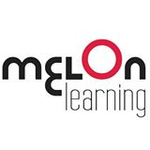Description

EduWave

Melon LMS
Comprehensive Overview: EduWave vs Melon LMS
EduWave and Melon LMS are both learning management systems (LMS) designed to facilitate and enhance the educational experiences of various users. Both cater to different segments of the educational and training markets, although they share some similar functionalities. Below is a comprehensive overview of each platform.
a) Primary Functions and Target Markets
EduWave
Primary Functions:
- Comprehensive Educational Management: EduWave offers solutions for learning management, content management, and student information systems (SIS) within a single integrated platform.
- e-Learning and Virtual Classrooms: It supports distance learning through virtual classrooms, multimedia content delivery, and interactive learning modules.
- Assessment and Evaluation Tools: The platform provides tools for creating assessments and tracking student performance and progress.
Target Markets:
- K-12 Education: EduWave is predominantly used in primary and secondary education settings. It supports schools and educational authorities with managing large educational networks.
- Higher Education: Some universities and colleges may also use EduWave’s features for higher education environments.
- Government Organizations: Certain government agencies utilize EduWave for scalable educational initiatives, particularly in regions like the Middle East.
Melon LMS
Primary Functions:
- Corporate Training Management: Melon LMS focuses on employee training, offering features like course creation, progress tracking, and reporting.
- Customizable Learning Paths: The platform allows the creation of tailor-made learning paths for different user groups, enhancing the personalization of training programs.
- Rich Content Support: It supports a variety of content formats, including video, audio, and SCORM-compliant materials.
Target Markets:
- Corporate Sector: Particularly used by businesses seeking to streamline their training processes for employees and partners.
- Professional Development: Organizations focusing on continuous professional development employ Melon LMS to upskill their workforce.
- Non-Profit & Associations: Some non-profit organizations use Melon LMS for training volunteers and members.
b) Market Share and User Base
Determining precise market share and user base can be challenging without specific, up-to-date analytics, but general insights can be provided based on industry observations:
-
EduWave tends to have a significant presence in the K-12 education sector, particularly in certain regions such as the Middle East. Its adoption by governmental educational projects means it can capture large user bases within specific countries.
-
Melon LMS typically has a more substantial foothold in the corporate training market rather than traditional educational environments. Its clientele includes businesses and organizations across various industries seeking efficient training management solutions.
Overall, both platforms have carved out specific niches within the broader LMS market, with EduWave leaning more towards conventional educational environments and government educational systems, and Melon LMS focusing on corporate training and professional development.
c) Key Differentiating Factors
EduWave
- Integrated Education Management: A comprehensive solution combining LMS and SIS functionalities, suited for large educational networks.
- Focus on Government and Institutional Deployments: Its ability to handle large-scale deployments makes it attractive to government bodies and large, centralized education systems.
- Intensive Localization Capabilities: Adapted particularly for specific regions like the Middle East, which can include language support and culturally relevant educational structures.
Melon LMS
- Corporate Focus: Tailored for business and organizational training needs, rather than traditional education.
- Customization and Flexibility: Offers extensive customization options for businesses, allowing for personalized training paths and adaptable content.
- Modern UI/UX: Typically offers a modern, user-friendly interface designed to appeal to business users and employees engaging in self-paced learning.
Thus, while EduWave and Melon LMS serve overlapping aspects of e-learning and training management, they are differentiated primarily by their focus on different types of user bases and distinct functional emphases. EduWave excels in structured formal education settings, while Melon LMS caters more to dynamic corporate environments.
Contact Info

Year founded :
2020
Not Available
Not Available
Morocco
http://www.linkedin.com/company/edu-wave

Year founded :
Not Available
Not Available
Not Available
Not Available
Not Available
Feature Similarity Breakdown: EduWave, Melon LMS
When comparing EduWave and Melon LMS, we can break down their feature similarities and differences as follows:
a) Core Features in Common
-
Course Management: Both EduWave and Melon LMS offer comprehensive course management functionalities, allowing instructors to create, organize, and manage course content efficiently.
-
Student Information Systems (SIS) Integration: These platforms typically integrate with SIS to streamline administrative processes such as enrollment and grade tracking.
-
Assessment and Quizzes: Both platforms provide tools for creating and grading quizzes and assessments, offering various question types and automated grading where applicable.
-
Communication Tools: They offer communication features like announcements, messaging, and discussion forums to facilitate interaction between students and instructors.
-
Content Delivery: Extensive support for multimedia content delivery, allowing the inclusion of videos, audio files, documents, and other resources within the learning modules.
-
Analytics and Reporting: Both LMS offer analytics and reporting tools to track and analyze student performance and engagement metrics.
-
Mobile Access: The platforms support mobile access, providing learners the flexibility to access course materials and participate in learning activities from various devices.
b) User Interface Comparison
-
EduWave: EduWave generally features a comprehensive and slightly more complex interface owing to its integration capacity with broader educational management requirements. The design is often aimed at managing large-scale educational institutions with multiple stakeholders, thus offering a rich set of admin tools.
-
Melon LMS: Melon LMS typically provides a streamlined and user-friendly interface focused on usability and simplicity. This might appeal more to organizations and institutions seeking an easy-to-navigate platform without the additional complexities.
The choice between these interfaces often comes down to the specific needs: EduWave might suit larger systems looking for more administrative integration, while Melon LMS might appeal to those preferring straightforward use and design.
c) Unique Features
-
EduWave:
- Comprehensive Educational Ecosystem: Beyond just LMS functionalities, EduWave integrates with broader educational systems, providing tools for learning management, student information system, assessment management, and content management in a single platform.
- Scalable Solution: EduWave is designed to handle large-scale implementations with complex requirements, often seen in nationwide educational systems.
-
Melon LMS:
- Easy Customization: Melon LMS is recognized for its customization options, allowing organizations to tailor the look and functionality to better suit their branding and specific training requirements.
- Focus on Corporate Training: While equally applicable to educational settings, Melon LMS often caters to corporate training needs and professional development environments, offering specific features tailored to these contexts such as certification and compliance tracking.
In conclusion, while both EduWave and Melon LMS share many standard LMS features, they cater to different scales and types of educational needs, with distinct advantages in comprehensive educational management and customizable corporate training, respectively.
Features

Not Available

Not Available
Best Fit Use Cases: EduWave, Melon LMS
EduWave and Melon LMS are both learning management systems (LMS) that can be leveraged by various organizations to deliver, manage, and track educational content and training. Here's a detailed look at their best fit use cases:
a) EduWave
Best Fit Use Cases:
-
K-12 Education and Higher Education Institutions:
- EduWave is designed with a strong emphasis on catering to the needs of K-12 and higher education institutions. It serves as a comprehensive solution for managing student information, learning content, and communication between stakeholders.
-
Government Education Initiatives:
- Many governments and educational ministries use EduWave for large-scale implementations of e-learning and student information systems. Its capacity to handle complex and large-scale educational frameworks makes it a preferred choice for government-led projects.
-
Education Networks and Consortiums:
- EduWave is ideal for educational consortiums or networks that require integration across multiple schools or universities, needing standardized processes and data management.
b) Melon LMS
Preferred Scenarios:
-
Corporate Training Programs:
- Melon LMS is highly suitable for businesses that need to conduct regular training sessions for their employees. It offers features that support onboarding, compliance training, skills development, and leadership courses.
-
Small to Medium-Sized Enterprises (SMEs):
- Its scalability and ease of use make it ideal for SMEs that seek to implement a straightforward and effective LMS without the need for a large-scale implementation.
-
Professional Development and Certification:
- Organizations that offer professional certifications or need to track the continuous professional development of their staff can benefit from Melon's robust tracking, assessment, and reporting tools.
d) Industry Verticals and Company Sizes
EduWave:
- Industry Verticals:
- Primarily focused on the education sector, including public and private schools, universities, and vocational training centers.
- Company Sizes:
- Large-scale institutions and governmental bodies benefit from its extensive features aimed at managing large volumes of data and users.
Melon LMS:
- Industry Verticals:
- Flexible enough to serve a variety of sectors including corporate, healthcare, nonprofits, technology companies, and professional training providers.
- Company Sizes:
- Suitable for both small and medium-sized enterprises due to its scalable nature, but also serves larger organizations seeking to deploy tailored training programs without extensive resource allocation.
Each LMS caters to specific needs based on the complexity of the training required, size of the organization, and the industry vertical they operate within. EduWave excels in academic and educational environments, often with large-scale implementations, while Melon LMS is versatile, catering to more diverse sectors including corporate and professional training.
Pricing

Pricing Not Available

Pricing Not Available
Metrics History
Metrics History
Comparing undefined across companies
Conclusion & Final Verdict: EduWave vs Melon LMS
When comparing EduWave and Melon LMS, it's important to consider multiple factors including features, ease of use, customization, scalability, support, and overall cost. Here's a breakdown to help determine which product might offer the best overall value:
Conclusion and Final Verdict
a) Considering all factors, which product offers the best overall value?
The best overall value between EduWave and Melon LMS will largely depend on the specific needs and priorities of the institution or company. Generally:
-
EduWave is widely recognized for its comprehensive suite, serving K-12, higher education, and administrative functions, making it ideal for institutions that need an all-encompassing solution with robust administrative tools.
-
Melon LMS might offer the best value for companies or institutions that prioritize user-friendly e-learning tools, particularly those focusing on corporate training and smaller institutions that need efficient, cost-effective solutions.
b) What are the pros and cons of choosing each of these products?
EduWave:
-
Pros:
- Comprehensive features supporting various educational levels.
- Strong administrative and analytics tools for educational institutions.
- Scalable to accommodate large student populations.
- Integration capabilities with various educational technologies.
-
Cons:
- Can be overwhelming for smaller institutions or those with less complex needs.
- May require more training for users due to the complexity of features.
- Typically higher cost, reflective of its wide-ranging features.
Melon LMS:
-
Pros:
- Highly user-friendly interface that is easy to navigate.
- Tailored specifically for corporate training and smaller educational environments.
- Cost-effective, particularly for businesses focused on e-learning and training.
- Quick implementation and onboarding process.
-
Cons:
- May lack some advanced educational administrative features found in EduWave.
- More suited for specific training environments rather than full-scale educational systems.
- Limited scalability for large institutions with complex needs.
c) Specific recommendations for users trying to decide between EduWave vs Melon LMS?
-
For Educational Institutions: If your institution covers K-12 to higher education and requires extensive management and administrative features, EduWave is a suitable choice. Its scalability and comprehensive tools can meet the demands of large student bodies and complex institutional structures.
-
For Corporate Training and Smaller Institutions: Melon LMS stands out as the preferred choice given its simplicity, cost-effectiveness, and focus on e-learning features. For organizations that prioritize ease of use and rapid deployment over extensive functionality, Melon LMS offers a compelling option.
-
Assess Needs and Priorities: Users should conduct a thorough needs assessment, considering the number of users, required features, budget, and long-term goals. A product demonstration or trial could further assist in making an informed decision.
Ultimately, the choice between EduWave and Melon LMS will depend on the specific operational goals and constraints of the user.
Add to compare
Add similar companies



